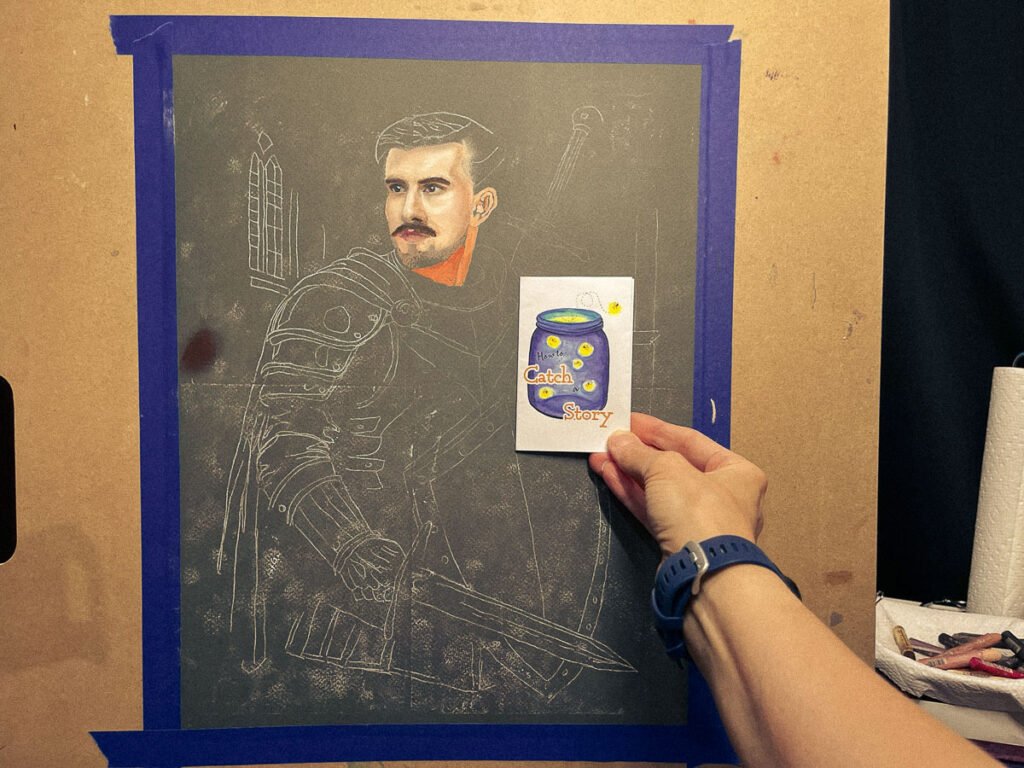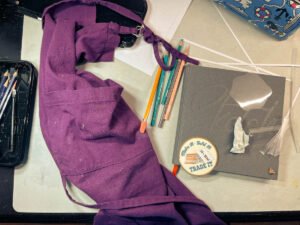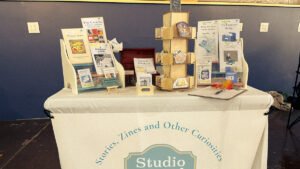There’s a secret I didn’t realize I was using until recently: the smaller the project, the more likely I am to finish it.
It’s not that small projects are easier. They take real work, sometimes just as much as their larger counterparts. But they carry a kind of quiet magic. A mind trick. They feel more doable, more playful, more forgiving. And that changes everything.
Take my last two zines. I decided to make them mini-sized, those little fold-out booklets made from a single sheet of paper. They have the same illustrations, same writing as a larger sized zine. Same amount of brainpower. But for some reason, when the whole thing fits in the palm of my hand, it seems lighter. Less intimidating. Easier to start and far more satisfying to complete.
In just the last two months, I’ve finished more creative work than I have in the past two years. Not because I suddenly get faster or more efficient, but because I started thinking smaller.
I’ve been reflecting on why this works so well for me. I think part of the answer lies in how my brain handles complexity.
Like many neurodivergent folks, I thrive in creative environments but hit a wall when too many decisions pile up. Big projects often feel like an unsorted mountain. But small projects? They have edges. Structure. Built-in limits. They give me enough freedom to explore without tipping into overwhelm.
Mini projects just make sense to me. They match how I process ideas, how I prioritize, and how I find satisfaction in progress. It’s not about doing less. It’s about framing the work in a way that lets me finish. And that, for me, is the real secret.
Even the stickers I’ve been making tap into this. They’re tiny, but they demand real attention. I still draw them at full size, scan them, and finish them digitally, but my brain shrugs and says, “It’s just a sticker.”
That one sentence has the power to dissolve perfectionism on contact.
Compare that to the oil pastel portrait I’ve been chipping away at. It’s a 12 x 16 piece of a DnD paladin: head, torso, armor, background. And even though I want to work on it, I find myself circling it like it’s a boss-level encounter. Too many elements, too much paper, too many choices. I finally broke it down. Do the face first. Then the hair. Then the armor. One section at a time. It helps, but it’s still mentally heavy in a way that my tiny zines never are.
Looking back, the most manageable long project I ever completed was writing the Aliki Martin draft, and I think it worked because it was already broken into small units. Each chapter was its own little mission. A week of effort, a feeling of progress, then on to the next. (Editing it? Not quite so magical.)
So here’s what I’ve learned, and maybe it’s the secret you need too:
If you’re struggling with big projects, it might not be the work that’s hard, it might be the scale. Mini projects aren’t just cute. They’re powerful. They bypass resistance and build momentum. They don’t scare your brain into stalling.
Try shrinking the frame of reference. Call it a zine instead of a book, write short stories instead of novels, make cartoon illustrations instead of works of art. Try making one sticker instead of a whole page of them.
The momentum of finishing something small is real. And when you look back, you’ll see that those little wins add up. Not just to one big project, but to a whole constellation of completed things.




